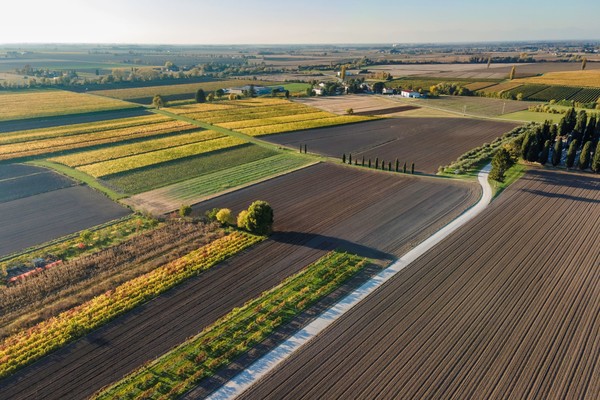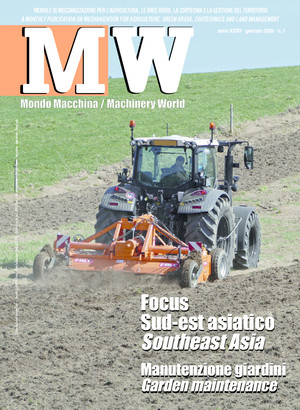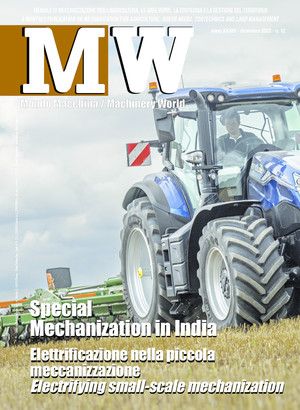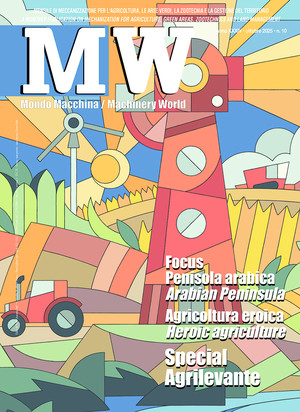
Environment, work and income: the EU agenda
The new Italian government faces difficult challenges in agricultural policy. In the current phase, the primary sector is being asked to be more productive, but at the same time to comply more and more strictly with sustainability standards and Green Deal commitments. This puts at risk the economic resilience of a production fabric largely composed of small enterprises
In this time of transition, not only ecological, the European and Italian agenda is full of commitments, of problems to be addressed. And even the newly appointed Minister of Agriculture and Food Sovereignty, Francesco Lollobrigida, is called upon to take on unprecedented challenges. Starting with the goal that all of us, the Union in the forefront, have set ourselves of reducing greenhouse gases and pollution in soil and water. An unavoidable necessity that must not, however, degenerate into ideology, comparing our livestock farms to chimneys, for example, and jeopardising the sustainability of the livestock sector.
It is no coincidence that, as rapporteur for the S&D Group in the Agriculture Committee of the European Parliament on the Industrial Emissions Directive, I criticised the EU Commission's proposal that would oblige even smaller farms to submit to an authorisation scheme and implement increasingly stringent production practices. With a Common Agricultural Policy (CAP) in force since 2023 and that will be with us until at least 2027, we can no longer afford oversights and delays in order to move to the levels of sustainability - environmental, economic and social - that we have set ourselves. This is why we will not be able to accept a system of authorisations, such as the one proposed by the EU Commission, which would like to impose on even the smallest companies the use of practices dropped from above, without adapting to the various production needs or guaranteeing them any support. This is why we want to improve a proposal that we consider disproportionate and that cannot be approved unless substantial adjustments are made to safeguard the entire agri-food chain and the food safety of our citizens. In essence, we cannot afford to jeopardise the sustainability of our farmers, breeders and all operators in the sector, including the agricultural machinery sector, with unwise charges that would add uncertainty to energy and raw material price increases.
Also on the European - and Italian – agenda, the issue of plant protection products. Products necessary to defend our crops that the EU Commission wants to halve by 2030 under the banner of the Green Deal, but without offering - for now - valid alternatives to all operators in the field.
And here we must note that New Breeding Techniques (Nbt), or Assisted Evolution Techniques (Tea), have been known for over twenty years and are the result of studies validated by the international scientific community. These genetic improvement techniques are still not actually applicable because there is no law authorising them. This means enormous damage on the horizon, especially in Italy, which is rich in highly specialised and technological orchards and vineyards.
A proposal for regulation was presented at the end of August by the European Commission with an impact assessment, and it is no coincidence that we in Parliament's Agriculture Committee called it 'schizophrenic'. Precisely because the EU executive, on the one hand, asks farmers to produce more, derogating from the environmental requirements of the CAP in order to cope with the food crisis caused by the war in Ukraine; on the other hand, it tries to impose completely unrealistic pesticide reduction targets, with devastating impacts on European production capacity and global food security.
Food safety goes hand in hand with another Italian pride and primacy, which is the reform of geographical indications. We are working on food products of excellence for a necessary amendment of the EU regulation in the name of simplification and enhancement of protection consortia. And here, as rapporteur of the measure, I am personally committed to achieving its approval by 2023 in the interest of all of us, citizens and consumers.








